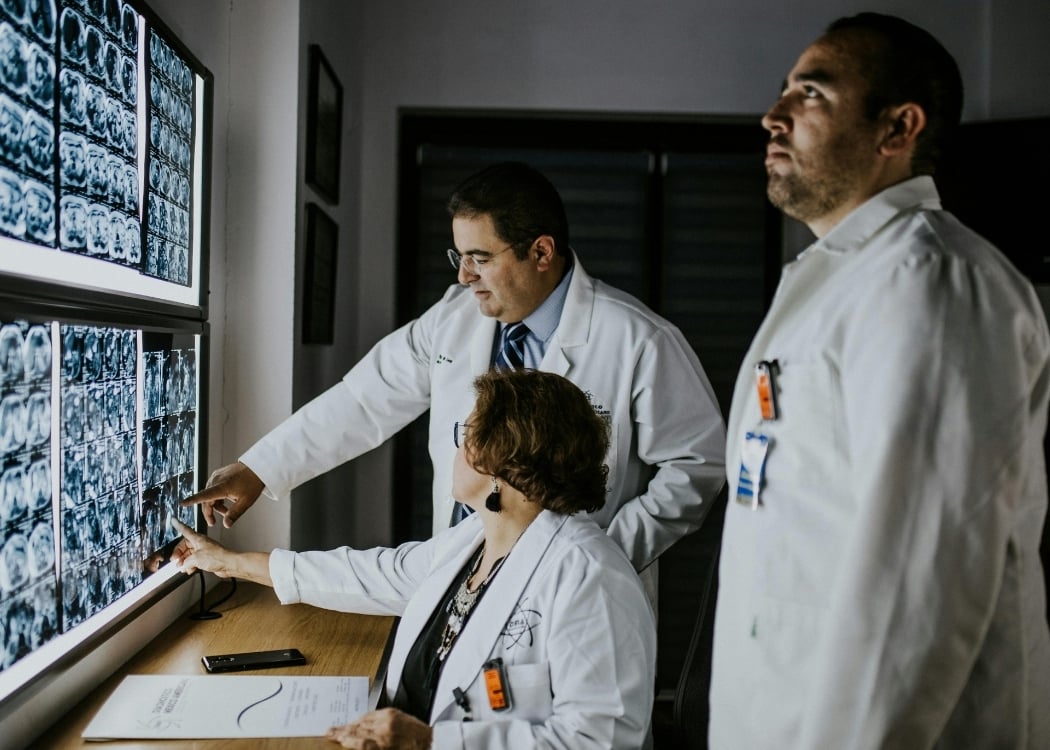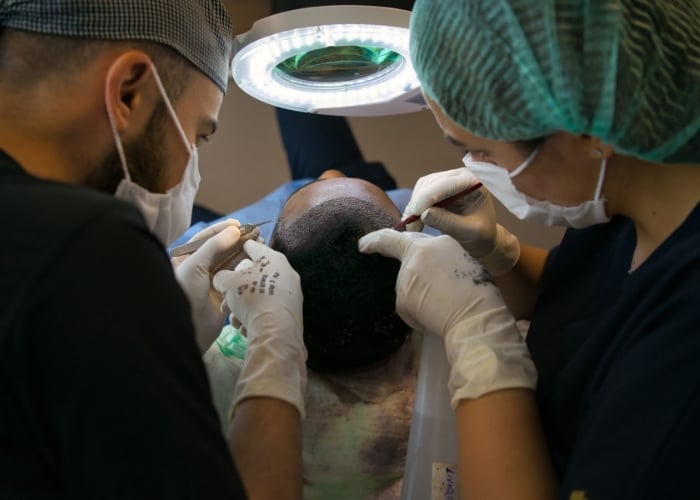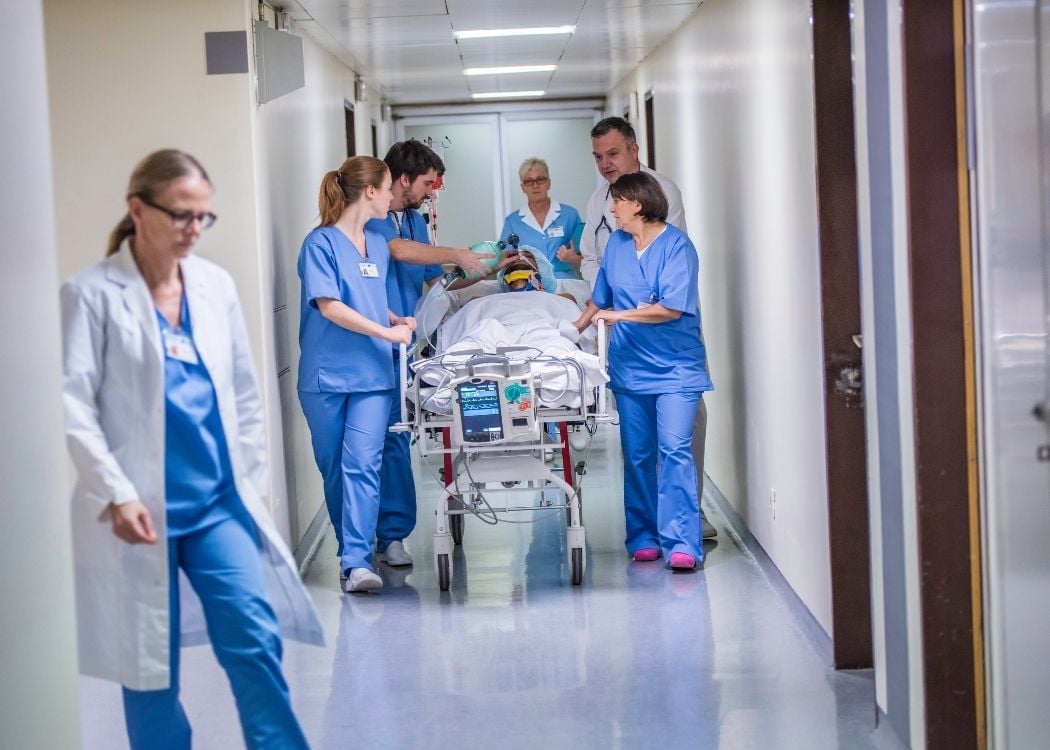Doctors in Istanbul
Doctors in Istanbul are highly trained and many have international fellowships and board certifications. They speak English, explain plans in simple terms, and work in modern hospitals with fast labs and imaging. Same-week appointments, clear prices, and coordinated aftercare make care easy for international patients.

Simple truth first. People do not travel only for prices. They travel for trust. They travel for organized care and steady hands. In this city, the rhythm of medicine feels practiced and calm. Clinics and hospitals work at scale. Teams know how tocoordinate tests, surgery days, recovery, and travel plans. When people talk about doctors in istanbul, they often mention how the process feels clear from the first message to the last follow up call. That sense of order is what turns a trip for care into a plan you can keep.
Why Istanbul became a natural medical hub
The city sits between continents and welcomes people from many cultures. That is true for tourism, and it is also true for care. Over years, private hospitals, university centers, and licensed outpatient facilities grew side by side. Diagnostics, imaging, and laboratories became tightly linked to clinical departments. This made same day decisions and short planning cycles normal. When you meet doctors in istanbul you notice how often they work in teams. A surgeon is never alone. An anesthesiologist joins early. Nurses keep the schedule moving. Coordinators watch your flight times. Everyone understands that a visitor wants good medicine and simple logistics at the same time.

Training, experience, and the way teams are built
Medical education is rigorous here. After medical school comes residency and often fellowship level focus. Many specialists spend time in international centers or take part in congresses and workshops. You will hear a mix oflocal and global language in the corridors. You will see up to date devices and clear protocols.
What stands out is volume. Because Istanbul receives many local and international patients, case numbers are high in specialties like dentistry, hair restoration, eye surgery, aesthetic and reconstructive surgery, bariatrics, orthopedics, fertility care, and oncology support. High volume does not replace judgment, but it shapes skill. It builds muscle memory for steps that must be done the same way every time. This is what people mean when they say doctors in istanbul work with steady hands.
How communication works with international visitors
Many hospitals and clinics have international patient desks. Messages arrive by email and by popular messaging apps. Replies come in clear English and often in other languages as well. Time zone awareness is real. If you are eight hours away, someone from the night shift may answer so your plan does not wait.
You will be asked for recent reports and scans. You will receive a request for photos if your case allows that. Then you will receive a simple plan with a budget and a calendar. It is not a contract. It is a roadmap. The most reassuring part is that doctors in istanbul are used to this rhythm. They build care plans that respect the clock and still leave room for proper recovery.
First meeting and the feeling of the clinic day
Arrival days are designed to be calm. You enter a quiet lobby or a focused outpatient floor. Someone greets you by name and confirms your records.Vital signs, blood tests, and imaging happen in a sequence that makes sense. The doctor meets you with the results on hand. You talk about goals and limits. You talk about what success looks like for you. You receive consent forms in simple language. You probablyleave with a printed plan. That first day often decides if you will move forward now or later. Most people move forward because doctors in istanbul explain each step in a way that is easy to remember and easy to share with a family member at home.
Quality signals that do not feel like marketing
In this city, serious centers do not rely on big promises. They rely on systems. You notice careful hand hygiene, clean rooms, and device traceability. You notice how medicines are labeled and double checked. You notice that consent is not a page you sign and forget. It is a conversation about risks, benefits, and alternatives.
Some hospitals holdinternational accreditation that you can verify in a public directory. Some outpatient centers remain focused on national licensing and strong internal audits. What matters to a traveler is that the place runs like a place that expects visitors every day. That is what you get from doctors in istanbul who work inside organized systems.

Matching the setting to the case
Not every plan belongs inside a large hospital. Many safe and common treatments live in licensed outpatient centers. Eye surgery, day case ENT, minor cosmetic procedures, endoscopy, and many dental treatments fit well in these settings. Complex work or anything that needs intensive monitoring belongs in a hospital with more layers of support. Your team will guide you. Doctors in istanbul usually explain why one setting is safer than another for your specific case. They do this without pressure. The tone is respectful and calm. You feel free to ask for a second opinion if you wish. No one takes that personally.
Language, culture, and bedside manner
Many visitors expect language to be a problem. In practice, it is often a pleasant surprise. Coordinators translate when needed. Surgeons and physicians speak English and often a second or third language. When a concept is hard to explain, a staff member will draw it or show a diagram. Body language is gentle and professional. Family members are welcomed into the conversation when you want that. Cultural habits aroundvisiting hours and meals are explained in advance. The result is less stress. People who arrive worried find themselves breathing more easily. That is one reason so many people recommend doctors in istanbul to others.
Time on the ground and how plans fit real life
Travel for care is a puzzle. Flights, hotels, calendars, and energy levels must all fit together. Teams in this city are used to that puzzle. They design a week so that consults and tests cluster early, procedures happen when you are ready, and recovery has space to breathe. Adental plan may run three to five days with a calm day in the middle.
A rhinoplasty plan may span about seven to ten days with checks before you fly. Eye procedures often allow gentle sightseeing within a short time as long as you follow the care instructions. When your calendar is tight the team will say what is possible and what is not. Doctors in istanbul do not treat time as a vague idea. They treat it as part of the treatment.
Records, reports, and the digital layer
Good care does not end at the airport. Records travel with you. You receive a discharge letter, a list of medicines, and links to imaging.Product labels for implants or lenses are placed in your file. Many centers will arrange a video check after you return home. If something worries you, you send a photo or a short video and receive advice the same day. Doctors in istanbul want your local doctor to be comfortable as well. They will send a summary in English on request so any follow up at home is safe and smooth.
Money conversations that feel calm
People feel uncomfortable when pricing is vague. The better centers know this. They send a clear quote with inclusions and exclusions. They explain what happens if a plan changes for a medical reason. They explain how refunds work if a procedure is delayed for safety. They explain payment options and whetherdirect billing is possible with your insurer.
Most people simply pay by card on the day and claim later if their policy allows. The absence of surprises is what helps you relax. You remember the skill of the surgeon. You also remember the simple moment when the numbers were explained and you felt respected. It is a small thing but it reflects how doctors in istanbul view the entire patient experience.

Safety culture and the power of routine
Safety is not a slogan. It is a daily habit. You see it in preoperative checklists, in device maintenance logs, in the waynurses confirm your identity before medication, and in how teams pause and talk when something changes. You see it in the choice to delay a case when lab results need another look. You see it in the way a clinic follows national communication rules for health services and avoids exaggerated claims. Visitors remember these details. They tell friends that doctors in istanbul were open about risks and careful about timing. That is what trust feels like.
Understanding specialties through real life examples
Think of a traveler who has worn glasses for years and wants laser vision correction. The center runs a careful screening. Corneal maps, tear film checks, and pupil measurements are done before any decision. If the eye is not a good candidate, the team says so with kindness and suggests alternatives.
Think of a patient who comes for a smile makeover. The dentist talks about gum health and bone biology first and style second. Provisionals are worn before final ceramics. Think of a person who needs bariatric surgery for health reasons. Education starts early and nutrition support continues for months. These are common stories in clinics across the city. They are common because doctors in istanbul do not rush the parts that matter most.
When a second opinion helps
Some people arrive with complex histories. They bring scans, pathology slides, and thick folders. The first plan they hear may not be the plan they follow. Good teams encourage second opinions. They share images and invite colleagues to review. They explain how one approach compares to another. When you feel seen and heard, you make better choices. That is why doctors in istanbul do not treat a second opinion as a threat. They see it as part of safe practice.

Life around the hospital and the gentle side of the city
Care days should not feel like captivity. Between appointments you can take a short ferry ride, sit by the water with tea, or visit one calm gallery. Neighborhoods near major hospitals are used to visitors who walk slowly and rest often. Cafes serve light food that suits recovery. Hotels understand late checkout requests on procedure days. Small acts of hospitality add up. International patients say the city itself helps them heal. They also say that doctors in istanbul encourage gentle movement and fresh air when appropriate, which makes recovery kinder.
Aftercare that actually answers
Many clinics schedule a message check the day after a procedure. Nurses ask about sleep, pain control, and dressing changes. A coordinator confirms transfer times and follow up. If you feel unsure, you are not left to guess. You receive short videos that show how to wash an eye or how to place a garment or how to clean a wound. The tone is warm and practical. You feel guided rather than controlled. When people describe their trip months later they often say the follow up is the reason they recommend doctors in istanbul to family and friends.
Respect for privacy and boundaries
Privacy rules are taken seriously. Photos are not shared without consent. Staff do not use your image in public channels. During consults you may view anonymized clinical examples, but they are not shown as promises. This careful line between education and promotion protects patients. It also protects professionals. The result is a quieter kind of confidence. It becomes clear that doctors in istanbul value your dignity as much as your result.

How to choose without stress
People often ask for a secret formula. There is no magic list. There is a simple set of conversations. Ask for the full name and specialty of your doctor. Ask how often the team does your procedure each week. Ask for a written plan with a calendar and a quote. Ask what happens if plans change for safety. Ask how remote follow up works once you are home. The way a clinic answers these questions tells you everything. If the answers are clear and kind, you are in good hands. This is how most visitors pick the right doctors in istanbul for their needs.
Preparing at home so the week runs smoothly
Good trips begin before the plane leaves the ground. Gather your medication list and allergy notes. Save digital copies of old reports and images. Share anything that might affect anesthesia or healing. Plan to arrive rested. Bring comfortable clothes that open in the front if you expect limited shoulder movement. Place your clinic contact in your favorites list. When you land, the first day will already feel easier. The most organized doctors in istanbul will meet you halfway by building a simple timeline with you. Two clear minds are better than one hurried plan.
When family or companions join the trip
Companions make a difference. Many rooms in private hospitals have a comfortable chair for an overnight guest. Coordinators help with visitor rules and quiet hours. For outpatient plans, hotels near the clinic keep stress low. Loved ones can pick up soft meals and help with short walks. They can listen during discharge teaching and take notes. When family understands the plan, recovery feels safer. Teams here understand that care is a family story, not a solo mission. The way doctors in istanbul include companions shows that they see the whole picture.
What success looks like a month later
Good medicine is not only a perfect day in the operating room. It is also a month of small things done right. Medicines are taken on time. Dressings are changed with clean hands. Follow up images are shared for review. A worry is not hidden but voiced early. Walking and hydration become daily habits. Sleep is protected. Food is simple and kind. In that first month a safe plan feels like a new routine, not a burden. Most visitors say the same thing when they look back. They remember the kindness of nurses, the clarity of explanations, and the steady hand of doctors in istanbul who never treated them like a number.

Ethics and honest boundaries
Modern healthcare must balance hope with realism. In this city, experienced teams speak plainly about what a treatment can do and what it cannot do. They avoid inflated expectations. They decline to operate when risks outweigh benefits. They suggest counseling or nutrition support when those are the right first steps. This honesty surprises some visitors at first, then earns their respect. It is another reason why many people trust doctors in istanbul with important decisions.
What to remember when you compare cities
Comparisons are natural. People look at prices, flight lengths, hotel options, and case photos. These details matter, but the most important part is the match between your case and your team. A good fit feels calm from the first message. Questions are answered quickly. Plans are written and clear. Aftercare is real. The city around you supports rest. When you find that mix, your choice becomes simple. Many people find that mix here and say that doctors in istanbul were the reason the trip felt human from start to finish.
A short closing note
Health travel is a serious decision. It asks for courage and for care. Istanbul meets both needs with experience and with heart. The city’s medical community works every day with visitors who carry hopes and worries in equal measure. If you decide to come, expect organized days, honest conversations, and a plan that respects your life beyond the hospital. Expect teams who show up on time, speak clearly, and follow through. Expect a city that lets you heal in gentle ways between appointments. Above all, expect people who treat you with dignity. That is what visitors remember when they speak about doctors in istanbul and why they recommend them again and again.



